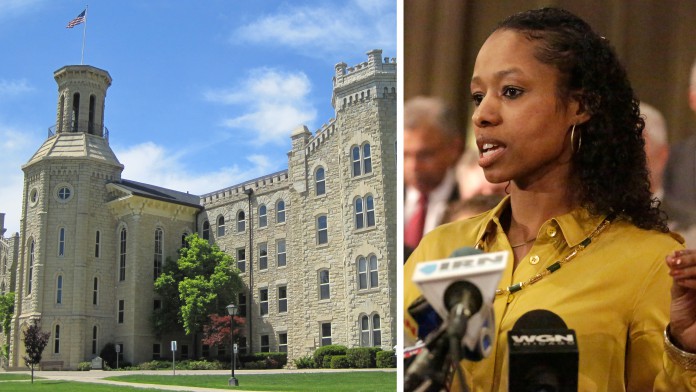Of course, a controversy of this magnitude—it’s been international news for weeks, with stories and comments in the New York Times, The Atlantic, The Chronicle of Higher Education, The Guardian, and now Time—is never actually “all because” of one thing. The media coverage has often needlessly inflamed the conversation, and yet you could hardly invent a case that would touch on a greater number of fundamental issues in Christian higher education:
1. The theological integrity of a Christian institution. Evangelical Christians want their institutions to have and maintain standards of belief and behavior. We’ve seen too many historical examples of Christian institutions that let their theological guard down, and the result has been the sabotaging of the institutions’ Christian identity.
2. Loving our Muslim neighbors. Islam and Christianity have literally been at each other’s throats for centuries. We need to figure out how not to slander one another, let alone kill one another. We want to encourage fellow believers to take bold steps to foster better relationships with Muslims.
3. Academic freedom. All truth is God’s truth. Professors at Christian colleges need freedom to explore truth wherever they might find it. This includes the right of professors to explore truth in research or activism. They should especially be protected by their administration from ill-informed intervention by donors and other powerful people outside the institution. Both Christian higher education and its faculties lose when academic freedom is thwarted.
4. Maintaining boundaries. Christians generally acknowledge that, as Christians, we voluntarily limit our freedom in order to obey God and flourish in communities. Freedom doesn’t mean that faculty and administrators can say or do whatever they want. That sort of freedom quickly saps the strength of any community.
5. Diversity on Christian campuses. White males no longer reflect the racial and ethnic makeup of contemporary Christianity. It’s a diverse movement, and evangelical institutions will be better for reflecting that. A large subtext of this controversy—to many, the main text—is that Hawkins is not only a woman but also African American. Losing her would diminish the school in many ways, as Wheaton administrators surely know.
6. Tenure. Tenure protects professors from arbitrary actions by the administration and trustees. Tenured professors should not have to live in fear of losing their jobs—or even being called on the carpet—over one or two misstatements.
7. Confidentiality. College administrators, and institutional leaders generally, should be able to have confidential conversations with each other and with faculty with whom they have disagreements. A policy of complete transparency would make it impossible for people to speak frankly for fear that their words would become public.
8. The right to know. Members of any Christian community have the right to know what its leaders are thinking and doing, especially when those leaders’ decisions affect them or the future of the institution. … Read More
